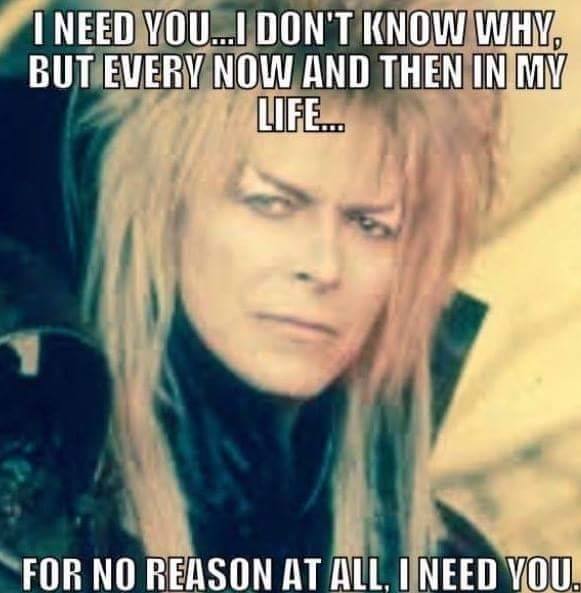Mesa Ridge High School Alumni
Colorado Springs, Colorado (CO)
Jade Dickerson
Mesa Ridge High School
Class of 2002
→ Join 1202 Alumni from Mesa Ridge High School that have already claimed their alumni profiles.
→ There are 24 classes, starting with the class of 1996 all the way up to class of 2022.
JADE'S PROFILE

| First Name | Jade |
| Last Name | Dickerson |
| Graduation Year | Class of 2002 |
| Gender | Female |
| Current Location | Fort George G Mead Junction, Maryland |
| Hometown | Colorado Springs, Colorado |
| Relationship Status | Married |
| About Me | http://stickgrappler.tripod.com/articles/brandonlast.html Brandon Lee's Last Interview The following interview was conducted on the set of The Crow just eleven days before Brandon Lee's untimely death. It is, we believe, his final martial arts interview and possibly even his final interview of any kind. These, then, are the last thoughts he officially conveyed to the public about himself and his career. A Tribute to Brandon Lee: Martial Arts Legends, August 1993 By William Wilson Goodson, Jr. While only 28, actor Brandon Lee has already established a reasonable track record with two American marital art/adventure films---Showdown in Little Tokyo and Rapid Fire. He has also done live theater and television. His father, legendary kung-fu instructor and actor Bruce Lee (Enter the Dragon), started training Brandon in the martial arts as a small child, before his sudden death in Hong Kong when Brandon was just eight. His mother Linda, an American of Scandinavian ancestry, rised him and his sister in Los Angeles, where he decided to become an actor. Brandon has used his athletic skills in all of his films up to now, but insists that he should be considered primarily an actor, not a professional martial artist. Lee spoke to me on the set of his newest film, The Crow, directed by Alex Proyas. The interview was conducted in stages between takes, so often you will find Brandon picking up and elaborating on his earlier thoughts. He is bringing to life the independent comic book character Eric Draven, (The Crow) a rock musician who returns from the dead in order to avenge his fianceé's murder by a group of gangsters. Wearing Kiss-style makeup, he relaxed between scenes as we discussed this, his first fantasy film and his career up to now. Martial Arts Legends: Many actors draw from personal experiences when they are creating a character. How do you find the motivation for somebody like The Crow? Is he a hero, ghost, goblin, villian? Brandon Lee: He has some powers that make him different than a normal man, but he is still a normal man. He is reacting to a very terrible tragedy which is not only his own death, but more importantly, the death of the woman he loved. The only thing that makes this remarkable is that his own death was involved and he has come back from the dead. I think you are dealing with a man who has been pushed to the limits of his own sanity by this situation that he finds himself in. MAL: Did you do any special training or preparation for this particular character? Lee: Well, I had some ideas about the physicality of the character. For example, I lost some weight for the part, first of all because I was kind of modeling his physicality after someone like Iggy Pop or, you know, Chris Robinson of the Black Crowes -- that real skinny, gaunt, rock-and-roll look. Also because he is the man that comes back from the dead, I felt he should not have a real robust, healthy appearance, if you know what I mean. MAL: I do. Did the make-up help you create the character? Lee: Yeah, it really has. I was talking about how you are dealing with a man who has been pushed to the limits of his own sanity. I think in some ways what happens is, he finds himself in a situation that he, Eric Draven, is not really capable of dealing with. Somehow creating this persona of the Crow, which involves the make-up and some of the kind of totem, totemistic---is that a word, totem-like? ---using some of the totems he picks up in his adventures. Like the spent shell casings he ties in his hair, and the electrical tape he applies to his body, he creates someone who is capable of dealing with the situation. MAL: Do you think he dies at the end of the film? Lee: I don't think that he was ever alive, not inthe usual sense of the word. I think that he has been given a certain amount of time and at the end of that time he returns to where he was before. MAL: More than once you have said that you always wanted to be an actor. What was it that attracted you to acting rather than something with a pension plan and regular meals? Lee: I can't tell you that there was any particular decision where I chose not to follow some other career. Since my earliest memories I always wanted to be an actor and I pursued that from the time I was very young. I read somewhere that anyone that can be persuaded not to be an actor should be persuaded, and I have really never felt that there were other paths for me. It is all I have ever wanted to do, and it is all I have ever pursued. I have been fortunate enough now to start to build a career doing that. MAL: What training have you had as an actor? Lee: I went to theater school at Emerson College in Boston [Massachusetts}. After that I went to New York and joined a theater company called the American New Theater. Eric Morris was the artistic director. MAL: How old were you then? Lee: Oh, 18, 19. Then Eric moved his company to Los Angeles. I moved with him and continued training with him for about four or five years, during which time I started getting some work. I still take acting classes today. MAL: You did some work in off-Broadway theater when you were in New York? Lee: Well, if I wasn't officially off-Broadway it was off, off, Broadway. [laughter] MAL: Do you remember anything you appeared in? Lee: Sure. We did a play called Full Fed Beast. MAL: Was that with the New American Theater? Lee: Actually, this was with a company that got started in Los Angeles. There was a writer by the name of John Lee Hancock who's now enjoying a great deal of success. He jsut sold a script called Perfect World that Clint Eastwood is going to direct with Kevin Costner and Eastwood [starring in it]. His first play was Full Fed Beast, so it was an original work we did out there. MAL: This was in Los Angeles? Lee: This was in Los Angeles. MAL: In '86, you played the son of Kwai Chang Caine in Kung Fu: The Movie Was that your first TV appearance? Lee: That was my first professional job. MAL: I think you played Caine's grandson in Kung-Fu: The Next Generation? Lee: Yeah. It was a strange experience because I was essentially playing my own grandson, I think. If I was Kwai Chang Caine's son in Kung Fu: The Movie and then I was playing a descendant of Kwai Chang Caine in the present day, then I was also playing my own grandson somehow. MAL: Were you approached about the new series? Lee: No! MAL: The most popular Chinese character in America is Kwai Chang Caine and he has always been played by a person who is not ever Eurasian, David Carradine. Does that cause any resentment among the Chinese actors? Lee: Yes, I think that it does. You had the same thing when Joel Grey played the Korean character in Remo Williams: The Adventure Begins. The fact of the matter is that when my dad was over here, during the years he was doing The Green Hornet, he eventually had to go to Hong Kong to pursue his career because he ran up against this barrier that existed at that time. This was thirty years ago, where there was not a Chinese leading man working in either film or television. There still is not a Chinese leading man working in America [today] --- not one. There are some very fine actors, but no Chinese leading men, no one somebody would bank a film on who is Asian in America. MAL: Do you think maybe you will be the first? Lee: Well, half of the first anyway. [laughter] MAL: Like you father, you also went to Hong Kong to make your first feature film? Lee: Yeah. I worked on one. It was called Legacy of Rage. MAL: That was in Cantonese. Do you speak Cantonese? Lee: Well, I speak it well, but my vocabulary has suffered a lot over the years. MAL: Did you meet any of you aunts and uncles while you were working in Hong Kong? Lee: Yes, I saw my uncle Peter, my father's older brother. I didn't [actually] meet them; I knew them all, of course. I grew up in Hong Kong until I was nine years old. MAL: In 1990, you played a martial arts-trained spy in Laser Mission with Ernest Borgnine, whos one of those character actors that everybody remembers. Lee: Oh, he was a wonderful man.... very kind to me, very helpful. I enjoyed working with him a lot. MAL: That file wasn't made in Hong Kong? Lee: That was made in Namidia [formerly Angola]. MAL: Then in 1991, you made Showdown in Little Tokyo with Dolph Lundgren. Was that your next film? Lee: Yes, that was the first film I made in the United States. MAL: In 1992, you both starred in and were fight coordinator for Rapid Fire. Lee: Along with Jeff Imada---we both did the fight choreography. MAL: Gentlemen's Quarterly once quoted you as saying that a fight scene might be used to help reveal character. Can you give me an example from your work of a fight scene helping to reveal character? Lee: Certainly. For example, in this particular film. [The Crow], I have the unique opportunity to play someone who is essentially invulnerable, and you have to take into account this fact when you are choreographing [fights] for this character. He is going to approach any kind of violent situation in a very different way than a normal man would, due simply to the fact that he has very little concern for being hurt. MAL: In Rapid Fire, your character did not seem to enjoy hurting people, but I could not put my finger on how you were giving that impression. Was there something you thought out to help do that? Lee: I simply felt that this was a young man who was a highly trained martial artist,but someone very much like myself, or most people, who is not accustomed to finding himself in violent life or death situations. This, once again, was an aspect of his character that had to be shown in the choreography. He was mostly out just to survive, to preserve his own life. Given an opportunity in any situation, he would certainly just as soon run, or get away from the conflict, because it was not a conflict of his choosing. MAL: On a television interview, you mentioned you have a videotape where you put together a compilation of your favorite fight scenes. Could you tell me some of the scenes on there? Lee: A lot of my dad's stuff. A lot of Jackie Chan's stuff. There are [in it] some other actors from over in Hong Kong, like Samo Hung, Yuen Biao, and a director named Tsui Hark. Aside from my dad's films, its mostly all [fight scenes from] Chinese films. MAL: No John Wayne? Lee: Nope, no John Wayne. Did you ever hear the story about John Wayne when he was in Greatest Story Ever Told? MAL: No. Lee: Well, there he is at the bottom of the cross, Christ is dying, and I believe his line was, "Truly he was the son of God." So he said the line and the director came over to him and said, "You think could you do that with a little more awe?" He said, "Sure," and so they roll the cameras for a second take and he said, (Brandon assumes a Texas twang) "Aweeee, truly he is the son of God." [laughter] It's suppose to be a true story, I don't know. MAL: Do you have a regular exercise schedule? Lee: Yes [pausing]. It includes working out at the martial arts academy, the Inosanto academy, the same one I have been going to since I was about 13. And then the rest of it pretty much depends on the film I am doing. MAL: Like gymnastics for Showdown? Lee: Yeah. Or weight training. I did some weight training for Rapid Fire. I haven't done any for this, [but] I have done a lot of cardiovascular work. Just boring everyday stuff like jumping rope and running, stairmaster and life cycle, and stuff like that because, like I said, I wanted to lose some weight. MAL: So your primary martial arts instructor is still Dan Inosanto? He was one of your father's students, wasn't he? Lee: He was one of my dad's students and he was a real close friend of the family when I was growing up. After my dad died and we moved back to the United States, I didn't really train at all for about 5 years. And then when I felt the urge to get back into it I naturally went to Danny's school. MAL: People Weekly reported that you had an encounter with a real knife-carrying burglar about five years ago. Was that true? Lee: I came home and found somebody in the middle of robbing my house, yeah. MAL: Nearly everybody who has studied the martial arts, including me, wonders what would happen if they had to use them for real. Did instinct take over? What do you remember of the incident? Lee: I am very pleased to say that instinct took over quite completely. We do knife-fighting drills down at the academy quite frequently and not just static knife-fighting drills, but the kind where one person will wear a fencer's mask and the other person will come at him quite vigourously with a rubber blade, and try and score. I really just clicked right back into [that training]. I am back at the academy, what should I do? It was a relatively brief encounter, I took the knife away from him, broke his arm, dislocated his shoulder, broke his nose and his jaw, then the police came and took him away. MAL: Did you have to appear as a witness? Lee: I had to show up, but I didn't have to say anything because he plead guilty. MAL: This sounds somewhat foolish, but I wonder why you didn't get in trouble for beating the guy up? Lee: No, not at all. When the police first came they cuffed us both, you know, but I understood that. It took about two or three minutes to figure out what was going on, and some of my neighbors came out and collaborated my story. At that point they let me go and were very polite about the whole thing. MAL: I know you don't usually discuss your father because he died while you were quite young. Do you have any feelings about Dragon, the new film biography that is coming out about him? Lee: Well, I haven't been real closely connected with the project. Mostly, I am glad they are making a film about him because I think he had a huge impact in his short life. There is a contribution that he made that certainly deserves to be remembered. So I am glad they are making a film and I truly hope they do a wonderful job. http://www.ew.com/ew/article/0,,302196,00.html Brandon Lee's Last Interview The actor discuss his upcoming film and role in ''The Crow'' Published on May 13, 1994 On March 19, 1993, a week and a half before his death, The Crow's Brandon Lee met with interviewer Ira Teller on the film's Wilmington, N.C., abandoned- warehouse set, where his character, Eric, wages his first open confrontation against those responsible for his murder and that of the woman he loved. The actor's videotaped comments were originally intended as part of the electronic publicity material that would go out to television stations to promote the film. Here, for the first time, are excerpts from that interview, which begins with Lee talking about his attraction to the role. LEE: When I first met with Alex Proyas, the director, one of the things that he talked about was wanting to see the film through Eric Draven's eyes. You're dealing with...a man who has come back from the dead, and I think the thing that I enjoy most about this is the questions that raises. If you died, and a year had passed since you died, you have to assume that the people you loved and the people who loved you would have had to come to terms with having lost you. And now suddenly you are given the chance to come back for two days.... Wouldn't you feel a responsibility not to trammel in the lives of the people who have had a year to deal with that loss? And you would see the world from a perspective no one has.... That's one of the wonderful things about playing this character-there are no rules about how a person who has come back from the dead is going to behave. There's this wonderful quote from (Paul Bowles' 1949 novel) The Sheltering Sky (paraphrasing): ''Because we do not know when we will die, we get to think of life as an inexhaustible well, and yet everything happens only a certain number of times . How many more times will you remember a certain afternoon of your childhood that is so deeply a part of your being you can't even conceive of your life without it? Perhaps four or five times more? Perhaps not even that. How many more times will you watch the full moon rise? Perhaps, twenty. And yet it all seems limitless.'' I know that's kind of a roundabout way of talking about it. But you tend to take a great deal for granted, because you feel like you're going to live forever. It's only if you lose a friend, or maybe have a near-death experience, (that) many events and people in your life suddenly attain real significance. When you take into account the fact that that could have been the last time I would ever see that person (or) do something so mundane as go out to dinner.... This is (where) this character is coming from. (He realizes) how precious each moment of his life is. And I thought to myself, if I were given the opportunity after a year of having been dead to come back, who would I want to see? The person would be my fiancee, Eliza, because I'm getting married after the film. And the thing about Eric is, the one person he would want to share this with isn't there anymore. And that's the tragic element of this character. TELLER: (While playing the character of Eric, who is murdered and then after being resurrected survives repeated attempts on his life) you've been subjected to extremes-shot, stabbed at, shot again. Would you elaborate on the unusual physical nature of the role? LEE: It's extreme. The character comes back from the dead, and, at first he doesn't know where he is, how he got there.... How does that tie in with the physicality? I just didn't think he should be too healthy-looking, so I lost some weight for the role. I've been colder on this film than I've been in years; I can never remember deliberately going outside when it was about 5 degrees, in the rain, with no shoes on. I think it adds to the character's experience-I mean, he's torn up emotionally, physically, and psychically, and the fact that there have been some stringent physical demands placed on me (has) only been helpful in creating that environment. TELLER: There's a great deal of action in the film. How did you approach the fights in this picture? LEE: I must say I've never done anything where I felt that the violence was as justified as it is in this (movie). The man I'm playing was murdered; the woman he loved was raped and then murdered. And he has come back to settle the score. I truly feel that if I were in the same situation, I would do the same thing. TELLER: There's a unique look to Eric-his dress, his makeup, his conversational style. Could you talk about that? LEE: If you've ever found yourself pushed to the limits of your tolerance... you find yourself doing some things that, from the outside, can be seen as quite insane.... The makeup Eric ends up putting on when he assumes this persona of the Crow is his reaction to being pushed to those limits. He cannot deal with what is going on, and by assuming this persona he creates someone who can. TELLER: What is his reward? LEE: His reward is that he is promised that he will be with Shelly, the woman he loved, in a better place. That's interesting because that falls into (the) realm of what is your conception of a better place, you know, is it a Christian heaven, or, uh, some kind of reincarnation? That's something the film never really tries to answer. We just leave it that he is given the opportunity to be with Shelly again, in a better place. TELLER: There's a wicked, dark sense of humor in this film. LEE: You're dealing with a character who is, at some points, quite insane. And I hope that any wicked, dark sense of humor Eric exhibits comes out of the fact that he'd been pushed to the point where it seems quite sensible to say some of the ridiculous things he says. God knows the times I have found myself in absurd situations.... (I) had this guy break into my house about four years ago, and I caught him in the middle of robbing me. I jumped in through the window...and put him on the ground. When the cops came, the fight had progressed out the window, onto the sidewalk. He had a knife I had taken away from him, and (I) pressed (it) up against the corner of his eye. The cops came down the street in the car. And I was together enough to realize that the cops wouldn't know what was going on at first glance, because all they know is people are yelling, ''Call the cops! Call the cops!'' So I stand up and take a couple steps away from the guy, and I toss the knife out in the street and put my hands up, and yell, ''I'm the good guy! I'm the good guy!'' It was a response that seemed to make sense to me at the time, and when I look at it later it's pretty absurd. I completely hope that moments in the film that echo that feeling come from the same place. One of my favorite bits that I wanted in the film (is) a line in the comic book (James O'Barr's The Crow), where Eric kills someone, shoots him several times, and then says, ''So much for the single-bullet theory.'' I always wanted that line where I was just about to take somebody down and I look at them and say, ''Do you have any theories about the Kennedy assassination? Boom-boom- boom-boom! So much for the single- bullet theory.'' But I'm not sure we're gonna get that in. TELLER: Destiny plays a very important role in the film. Characters are linked by events past. What about the destiny of Brandon Lee? LEE: Oh, now we're gonna talk about me, huh? Well, I'm freezing to death; it's cold in here! Was I destined to play this role? I don't know if I was destined to play this role, but I feel very fortunate to be doing so. Originally poste...(read more) |

Class of 2002 Alumni and Other Nearby Classes
→ Reunite with 13 class of 2002 alumni that have joined.

Becky Alter
Class of 2004

Jeremy Lorimor
Class of 2000

Jessica Ruterbories
Class of 2000

Angela Carbetta
Class of 2008

Amanda Hrabik- Maricevic
Class of 2004

Jeremiah Ranney
Class of 1999

Anthony James
Class of 2005

Amanda Rushford
Class of 1999

Sam J
Class of 2006

Charmaine Brow
Class of 2002

Viviana Velez
Class of 2001

Chris Mcginty
Class of 2003

Dasha Smith
Class of 2008

Charial Harvey Harvey
Class of 2016

Andrea Nickerson
Class of 2008

Tasha Adams
Class of 2006

Christina Harrison
Class of 2003

Natascha Torrez
Class of 2010

Savanna Trujillo
Class of 2006

Bret Wilmoth
Class of 1999

Kelly Baird
Class of 2001

Amanda Johnson
Class of 2004

Niko Allgood
Class of 2022

Christopher Strong
Class of 2008
